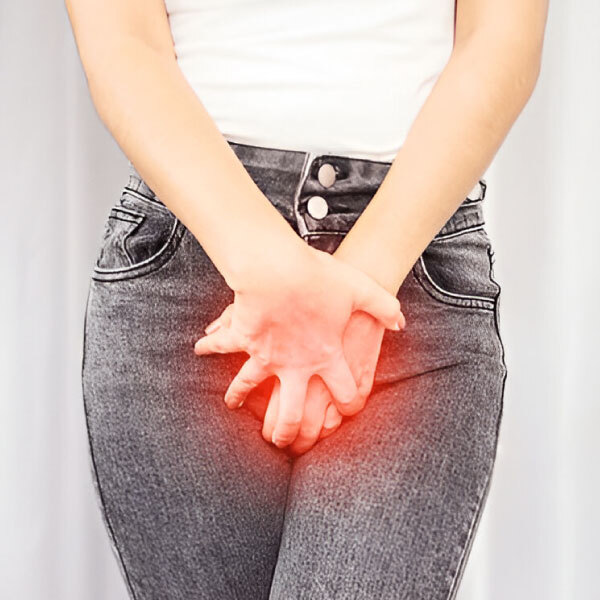
Vaginal dryness happens when the vaginal tissues don’t have enough moisture. This can cause itching, burning, or pain during intimacy. If you need relief, visit our DOXXES store on Westheimer/Dairy Ashford for personalized help and trusted products.
What Is Vaginal Dryness?
Vaginal dryness means the vaginal walls lack proper lubrication. It is often linked to low estrogen or changes in glands.
Types include:
- Superficial dryness – affects the outer vaginal area
- Deep dryness – affects the entire vaginal canal
- Provoked dryness – triggered by touch or movement
Why Does Vaginal Dryness Happen?
Psychological causes:
- Stress or anxiety
- Past trauma or abuse
- Relationship tension
- Fear of performance
Physical causes:
- Infections (yeast, bacterial vaginosis)
- Hormonal changes (like menopause or after giving birth)
- Weak pelvic muscles
- Scar tissue or prolapse
- Side effects from cancer treatment (like chemotherapy)
Vaginal dryness often has more than one cause—both mental and physical.
Examples and Identifying Triggers
Real-life examples:
- A woman going through menopause feels pain during intimacy.
- A breastfeeding mom has less natural lubrication.
- A cancer patient on chemotherapy experiences dryness.
- A stressed woman feels tightness and dryness off and on.
How to find your triggers:
- Use a diary or app to track dryness
- Note stress or hydration levels and how they affect you
- Try different lubricants or positions to find comfort
Who Is Affected?
Vaginal dryness can affect women at any stage of life—from teenagers to older adults. It can lower self-confidence and strain relationships.
Partners may feel confused or distant. Honest conversation can help both people feel supported.
How a Sex Therapist Can Help
- They’ll review your sexual history to find patterns
- They can screen for anxiety, depression, or past trauma
- Therapists also offer relaxation and coping strategies
Ways to Treat and Cope with Vaginal Dryness
Here are simple ways to manage symptoms and feel more at ease:
- Use vaginal moisturizers regularly—not just during sex
- Apply water-based lubricants to reduce friction
- Do pelvic floor exercises (Kegels) to improve blood flow
- Ask a doctor about hormone options if dryness is ongoing
- Talk to a therapist to address emotional or relationship stress

How Doxxes.love Can Help
We carry a variety of helpful items:
- Water-based lubricants
- Pelvic floor trainers
- Soft, body-safe vibrators
- Prostate massagers
Every product includes clear cleaning and usage instructions. Using these tools with therapy can speed progress and restore comfort.
Talking About Vaginal Dryness with Others
Need help starting the conversation? Try this:
- Share your feelings honestly (“I feel uncomfortable”)
- Speak for yourself—don’t blame your partner
- Pick a quiet, calm moment to talk
- Learn together using books or videos
- Get support from a counselor if needed
Visit Our DOXXES Store on Westheimer/Dairy Ashford
Visit us in person at our Westheimer/Dairy Ashford location. We offer private, judgment-free help to guide you toward the right tools for comfort and confidence.
Conclusion
You don’t have to live with discomfort. Understanding the causes of vaginal dryness and using simple tools—like open communication and trusted products—can bring lasting relief. Visit DOXXES on Westheimer/Dairy Ashford to begin your journey today.
FAQs
- What is vaginal dryness?
Vaginal dryness happens when the vaginal tissues lack natural moisture, leading to itching, burning, tightness, or pain—especially during intimacy. - What causes vaginal dryness?
It can be caused by hormone changes, stress, past trauma, breastfeeding, menopause, cancer treatments, infections, or certain medications. Both physical and emotional factors may contribute. - Can vaginal dryness affect any age group?
Yes. It can affect teens, new moms, menopausal women, and anyone going through hormonal changes or stress. - What are signs and symptoms to watch for?
Common symptoms include itching, burning, discomfort during sex, tightness, and reduced natural lubrication. - How do I identify my dryness triggers?
Track symptoms using a journal or app. Note changes in stress, cycle, hydration, and the type of products or sexual positions used. - How can therapy help with vaginal dryness?
A sex therapist can explore emotional causes like anxiety or trauma, teach stress relief techniques, and help rebuild intimacy and comfort. - What can I do at home to ease symptoms?
Use vaginal moisturizers regularly, apply water-based lubricants during sex, do pelvic floor exercises, stay hydrated, and avoid harsh soaps or products. - What tools does DOXXES offer to help?
DOXXES offers water-based lubricants, pelvic floor trainers, soft vibrators, and prostate massagers—all with easy instructions for safe and effective use. - How should I talk to my partner about vaginal dryness?
Use gentle, honest language like “I feel uncomfortable.” Talk in a calm, private setting, avoid blame, and consider learning about it together. - Where can I get support and products for vaginal dryness?
Visit the DOXXES store on Westheimer/Dairy Ashford for private guidance and comfort-focused products designed to help you feel confident and at ease.
